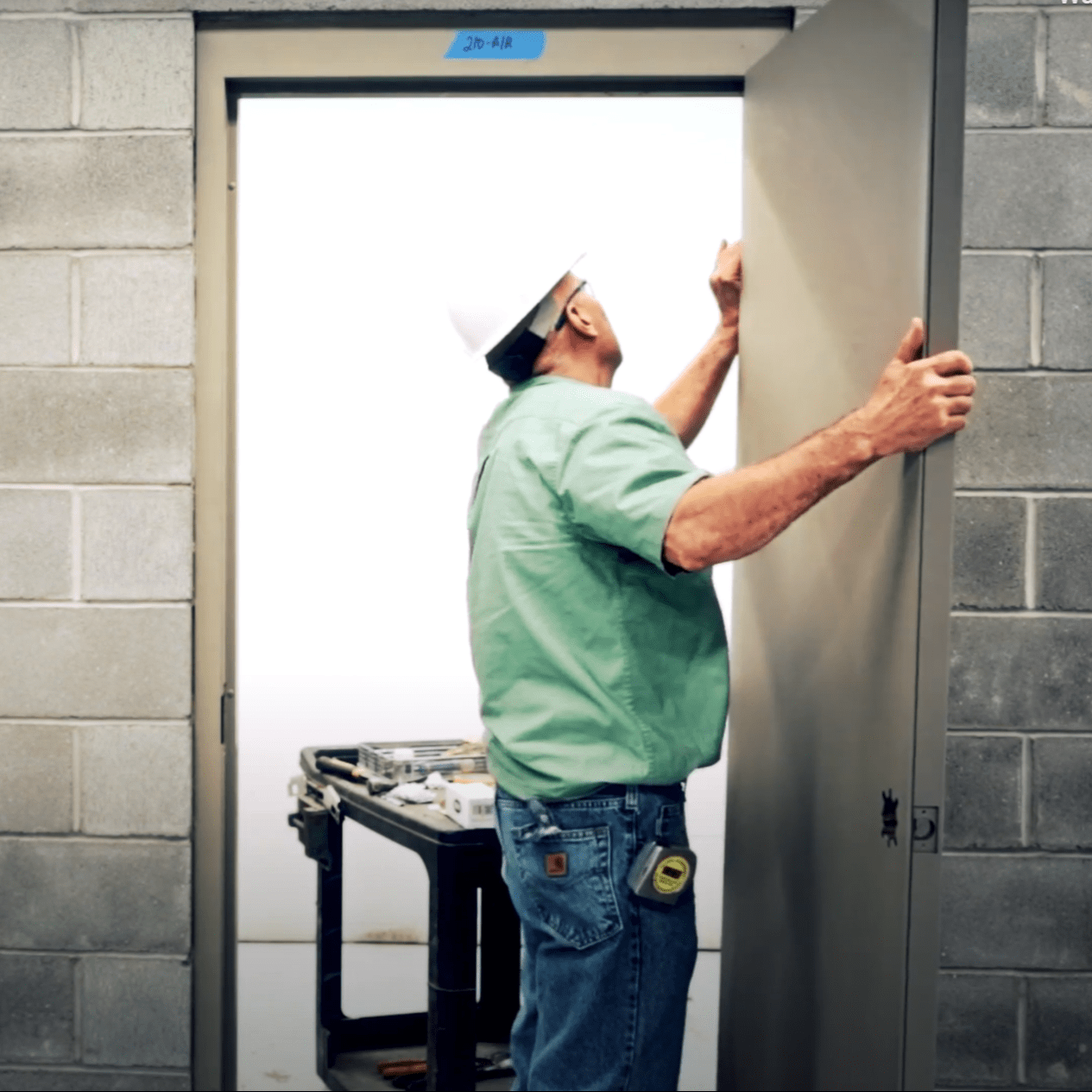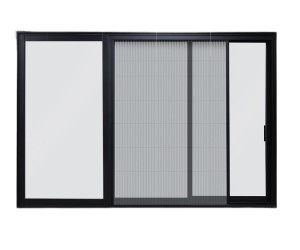Why professional door installation services prevent costly mistakes
Every little thing You Required to Learn About Selecting the Perfect Door for Any Kind Of Room
Choosing the perfect door for any kind of area requires mindful consideration of numerous aspects. Different door kinds offer distinctive purposes, while products can influence both sturdiness and looks. Dimensions play an important function in functionality. Safety features can not be ignored. As one navigates the intricacies of design and maintenance, the selections can feel frustrating. Understanding these components is important for making an informed choice that balances usefulness snappy. What vital variables will become many substantial?
Recognizing Various Door Types
When selecting a door, it is vital to recognize the various kinds available, as each offers a distinct function and visual. The most typical kinds include pivoted, moving, bi-fold, and pocket doors. Hinged doors, which swing open on a set of joints, are appropriate and functional for both exterior and interior use. Moving doors, frequently made use of for patios, conserve space and use a seamless change between indoors and outdoors. Bi-fold doors include numerous panels that fold to one side, making them suitable for vast openings and optimizing all-natural light. Pocket doors glide right into the wall surface, giving a concealed option that is excellent for tiny spaces. Each door kind not just adds to performance but likewise boosts the total style of an area, enabling house owners to select a style that matches their personal taste and building vision. Recognizing these alternatives is essential for making an educated choice.
Checking out Materials and Their Advantages
Choosing the ideal door material can noticeably affect both capability and appearances. Numerous materials provide distinct benefits, making it necessary to review the details requirements of an area. Timber doors, for example, are treasured for their all-natural charm and insulation properties. They can be tailored to fit any type of design style, yet need routine upkeep to stop warping and damage.
Steel doors, particularly steel, give improved protection and durability, making them suitable for exterior applications. They are immune to weather and insects, yet may do not have the heat of wood. Fiberglass doors incorporate the very best of both worlds, offering durability with the look of timber, while likewise being energy-efficient.
Finally, glass doors can produce a feeling of openness and permit natural light to stream right into an area. Nevertheless, they might call for extra personal privacy services. Understanding these materials makes it possible for informed decisions that align with both practical requirements and visual choices.

Dimension Issues: Choosing the Right Capacities
When picking a door, recognizing the ideal measurements is important. Standard door sizes supply a valuable starting factor, but accurately measuring one's space guarantees a proper fit (entry door replacement). In addition, factors to consider for personalized measurements might develop, especially in special architectural settings
Basic Door Sizes
The measurements of doors play a vital function in both performance and looks within a room. Basic door dimensions vary based on the type of door and its designated use. One of the most usual indoor door dimensions are 24, 28, 30, 32, and 36 inches in width, with elevations normally at 80 inches. Exterior doors tend to be bigger, usually measuring 36 inches, giving much easier gain access to. Additionally, some typical sizes might fit particular demands, such as double doors or pocket doors, which can boost style flexibility. It is necessary to take right into account these conventional dimensions when choosing a door, as they assure compatibility with existing frameworks and provide a well balanced aesthetic effect, ultimately adding to the total style of the space.


Determining Your Area
Precise dimensions are crucial for guaranteeing that a new door fits effortlessly within a marked opening. To start, one need to gauge the width and height of the door structure, taking note of any irregularities in the framework. It is advisable to measure at several points to make up variants, specifically in older homes. The typical door size is commonly 30, 32, or 36 inches, while the elevation normally determines 80 inches; nevertheless, it is important to validate these dimensions against the particular opening. Furthermore, think about the swing direction of the door and any type of potential blockages in the bordering area. Proper dimensions enable a smoother installation procedure and enhance the overall performance of the door within the space.
Custom Capacities Considerations
Custom-made dimensions play an important role in making sure that a door not just fits completely yet also enhances the overall style of a space. exterior door suppliers. When picking a door, it is crucial to think about the distinct dimensions of the door frame, along with any type of building functions close by. Custom-sized doors enable for a seamless combination right into different designs, whether conventional, contemporary, or rustic. Additionally, they can boost performance, providing ample clearance and ease of access. Homeowners must also consider the door's thickness and product, as these components can affect insulation and longevity. Ultimately, spending in custom dimensions leads to a tailored remedy that elevates the visual charm and usefulness of any space, creating a natural environment
Enhancing Security Features
While home owners prioritize visual charm when choosing a door, enhancing safety and security attributes continues to be a vital factor to consider. A well-chosen door not just enhances the home's layout however additionally functions as a very first line of protection against invasions. The material plays a substantial duty; strong timber or steel doors generally use remarkable toughness contrasted to hollow-core choices.
In enhancement to product, homeowners should consider the door's securing devices. Multi-point securing systems give boosted security by engaging at numerous factors along the structure, making break-in harder. Enhanced structures and strike plates can additionally strengthen door protection.
In addition, the installment of wise locks provides benefit and advanced security attributes, such as remote surveillance and keyless entry. Homeowners need to additionally examine door limits and climate removing, as these can avoid unauthorized accessibility and boost energy efficiency. Inevitably, incorporating robust protection attributes assurances peace of mind without endangering the door's total capability.
Aesthetic Factors To Consider: Style and Design
A door's style and design considerably influence a home's total aesthetic, as it offers as both an entrance and a visual focal point. Picking the right door entails reviewing various style elements that mirror the home owner's taste and the building design of the building. Contemporary homes might gain from streamlined, minimal doors including glass panels, while typical designs could embrace elaborate wood designs with intricate makings.
Shade and surface also play substantial functions in boosting aesthetic charm; bold tones can make a statement, while muted tones commonly blend harmoniously with the surrounding atmosphere. Furthermore, hardware selection-- such as manages and hinges-- must enhance the door's style to produce a natural look.
Inevitably, an attentively chosen door not just boosts aesthetic charm but likewise sets the tone for the indoor space, making it necessary to review visual aspects during the choice procedure.
Upkeep and Toughness Variables
When selecting a longevity, upkeep and door are crucial considerations that influence its long-term performance. A summary of material alternatives exposes varying degrees of upkeep and strength, while useful upkeep suggestions can expand the door's life-span. Furthermore, assessing weather condition resistance is vital for ensuring that the door endures environmental elements successfully.
Material Contrast Summary
Picking the right door material is important for homeowners seeking resilience and low upkeep. Numerous exterior door suppliers products supply distinct benefits. Steel doors, as an example, offer excellent resistance to tear and use, making them excellent for high-traffic areas. Fiberglass doors are another strong alternative; they resist moisture and are less susceptible to damages and scratches. Wood doors, while aesthetically pleasing, call for more maintenance because of sensitivity to warping and degeneration. Plastic doors offer a budget-friendly option with minimal upkeep, though they might not provide the very same longevity as metal or fiberglass alternatives. Eventually, the option of product influences not only the door's life expectancy but also the quantity of maintenance needed, affecting overall home owner contentment.
Upkeep Tips for Long Life
Regular upkeep plays an important duty in extending the life expectancy of doors, no matter of the material picked. House owners need to routinely check doors for any signs of damages, such as splits or warping. For wooden doors, regular sanding and refinishing can protect against deterioration and preserve visual allure. Steel doors take advantage of a clean, rust-free surface, which can be accomplished via normal cleaning and the application of protective finishings. Locks and joints call for lubrication to guarantee smooth operation, decreasing deterioration. In addition, making certain that door frames are appropriately straightened can protect against excessive anxiety on the door itself. By adhering to these maintenance methods, individuals can noticeably boost the durability and functionality of their doors, inevitably adding to long-term worth.
Climate Resistance Considerations
Weather condition resistance is usually overlooked, it is a necessary variable in the choice and upkeep of doors. Proper weather-resistant doors can significantly boost a home's power efficiency and safeguard against dampness, temperature, and wind changes. Materials such as fiberglass and steel use remarkable durability compared to wood, which may warp or rot over time. In addition, the quality of seals and weather stripping plays an important duty in avoiding drafts and water seepage. Regular assessments and maintenance can additionally extend a door's life-span, guaranteeing it remains useful and aesthetically attractive. Home owners ought to prioritize weather condition resistance to reduce potential damage and minimize lasting repair work prices, eventually adding to a more sustainable living environment.
Regularly Asked Inquiries
Exactly how Do I Know if I Required a Custom-Sized Door?
To identify if a custom-sized door is required, one need to gauge the existing door structure and analyze any kind of irregularities or distinct architectural features. If conventional sizes do not fit, customized choices become required for proper installation.
What Are the Best Door Options for Soundproofing?
The most effective door options for soundproofing consist of strong timber doors, fiberglass doors with sound-dampening cores, and specially developed acoustic doors. These materials effectively reduce sound transmission, improving privacy and comfort in numerous settings.
Can I Set Up a Door Myself, or Should I Employ a Professional?
He can install a door himself if he has the needed skills and tools. Employing a professional might guarantee a greater high quality installment, especially for complex or hefty doors requiring exact measurements and placement.
What Are the Average Costs Related To Different Door Kinds?
Average expenses for doors vary significantly; indoor doors range from $50 to $500, outside doors from $200 to $2,000, and specialty doors can surpass $5,000. Style, material, and installment influence general rates.
How Can I Enhance Power Efficiency With My Door Option?
Choosing protected doors with climate stripping and energy-efficient glazing considerably boosts energy effectiveness. Furthermore, picking strong materials over hollow choices lowers air leak, adding to much better temperature level policy and reduced power costs in any type of space.
Typical door dimensions vary based on the kind of door and its intended usage. When selecting a door, it is essential to take into account the unique dimensions of the door frame, as well as any kind of building functions close by. Additionally, making certain that door frames are effectively lined up can protect against unnecessary stress and anxiety on the door itself. The finest door alternatives for soundproofing include strong wood doors, fiberglass doors with sound-dampening cores, and specifically designed acoustic doors. Typical costs for doors vary substantially; interior doors range from $50 to $500, outside doors from $200 to $2,000, and specialized doors can go beyond $5,000.